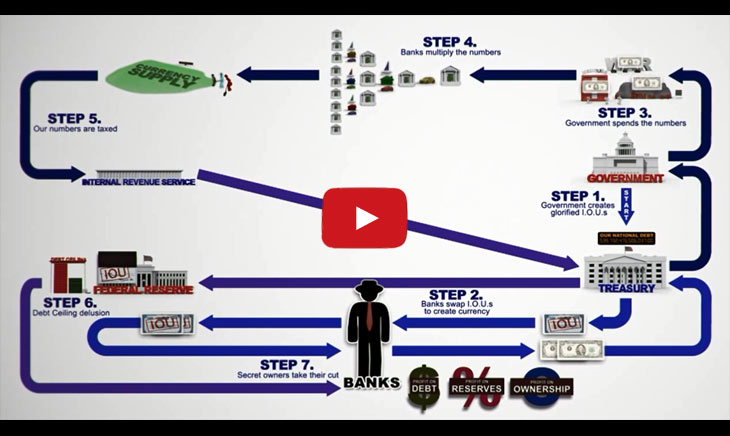8 Wealth Building Tips for The Challenging 2024
As we usher in the year 2024, the global financial landscape continues to evolve rapidly, presenting both opportunities and challenges for wealth building. From economic uncertainties to shifting market dynamics, individuals looking to secure their financial future need to adapt and make informed decisions.
In this article, we will discuss some key wealth-building tips to help you navigate the financial challenges of 2024 and beyond.
1. Diversify Your Investments
In the ever-changing financial landscape of 2024, diversification is more important than ever. To mitigate risks associated with market volatility, consider spreading your investments across various asset classes. A well-balanced portfolio should encompass stocks, bonds, real estate, and alternative investments. Diversification ensures that your wealth is not overly reliant on a single sector, helping you weather unexpected downturns.
Periodically rebalance your portfolio to maintain your desired asset allocation. This involves selling assets that have performed well and buying assets that are currently undervalued, ensuring that your portfolio remains aligned with your risk tolerance and long-term goals.
2. Focus on Long-Term Goals
Building wealth is not a sprint; it’s a marathon. Despite short-term market fluctuations, your long-term financial goals should remain steadfast. Whether you’re saving for retirement, a home purchase, or your children’s education, maintain your focus on the big picture. Consistent contributions and disciplined saving habits are your allies on this journey.
Consider automating your savings and investments. Setting up automatic transfers to your investment accounts ensures that you consistently contribute to your financial goals, regardless of life’s busy schedule. It eliminates the temptation to spend money that should be invested for your future.
3. Embrace Technology and Fintech Solutions
Technology continues to transform the financial landscape. In 2024, leverage fintech solutions and apps to streamline your financial management. Budgeting tools, robo-advisors, and mobile banking apps can help you save time, make informed investment decisions, and track your progress efficiently.
Take advantage of online financial education resources. Many reputable websites and apps offer free courses and educational content on various financial topics. By expanding your knowledge in this digital age, you empower yourself to make more informed financial decisions.
4. Build an Emergency Fund
Financial stability requires a safety net. Establish an emergency fund with at least three to six months’ worth of living expenses. This reserve will provide peace of mind and protect your investments from being liquidated in times of crisis.
Consider gradually increasing the size of your emergency fund over time to cover even more unexpected expenses, such as medical bills or major home repairs. A well-funded emergency fund can keep your long-term financial goals on track when unexpected challenges arise.
5. Educate Yourself Continuously
Financial literacy is your most valuable asset. The ever-evolving financial world demands ongoing education. Attend seminars, read books, and follow reputable financial experts to enhance your knowledge. Informed decisions are the foundation of successful wealth building.
Consider joining financial discussion groups or forums where you can exchange ideas and learn from others. Engaging with a community of like-minded individuals can provide valuable insights and support as you navigate your financial journey.
![]()
6. Seek Professional Advice
Complex financial situations often benefit from professional guidance. Financial advisors, tax professionals, and estate planners can offer personalized solutions. They can help you navigate tax laws, create comprehensive financial plans, and optimize your investment strategy.
Establish a strong rapport with your financial professionals. Regular communication and updates with your advisors can ensure that your financial strategy remains aligned with your evolving goals and circumstances.
7. Keep an Eye on Tax-Efficient Strategies
Tax efficiency plays a vital role in wealth accumulation. Explore tax-advantaged accounts like 401(k)s, IRAs, and HSAs to minimize your tax burden and maximize savings. Additionally, adopt tax-efficient investment strategies, such as holding investments for the long term to benefit from lower capital gains tax rates.
Be proactive in taking advantage of available tax deductions and credits. Regularly review your tax situation with a tax professional to identify opportunities for optimizing your tax strategy based on the most current tax laws.
8. Stay Disciplined and Avoid Emotional Decisions
Emotions can jeopardize your financial success. Resist impulsive decisions driven by fear or greed. Develop a well-structured financial plan and adhere to it. Regularly review and adjust your portfolio in line with your long-term objectives, not short-term market fluctuations.
Consider enlisting an accountability partner, such as a trusted friend or family member, who can provide support and help you stay on track with your financial goals. Having someone to share your financial journey with can reinforce discipline and deter emotional decision-making.
Conclusion
Building wealth in the challenging year of 2024 requires a proactive and strategic approach. By diversifying investments, maintaining a focus on long-term goals, embracing technology, creating an emergency fund, continuing financial education, seeking professional advice, optimizing tax strategies, and staying disciplined, you can navigate the uncertainties and secure your financial future.
Remember that wealth building is a gradual process, and by following these tips, you can take significant steps toward financial security and prosperity.

